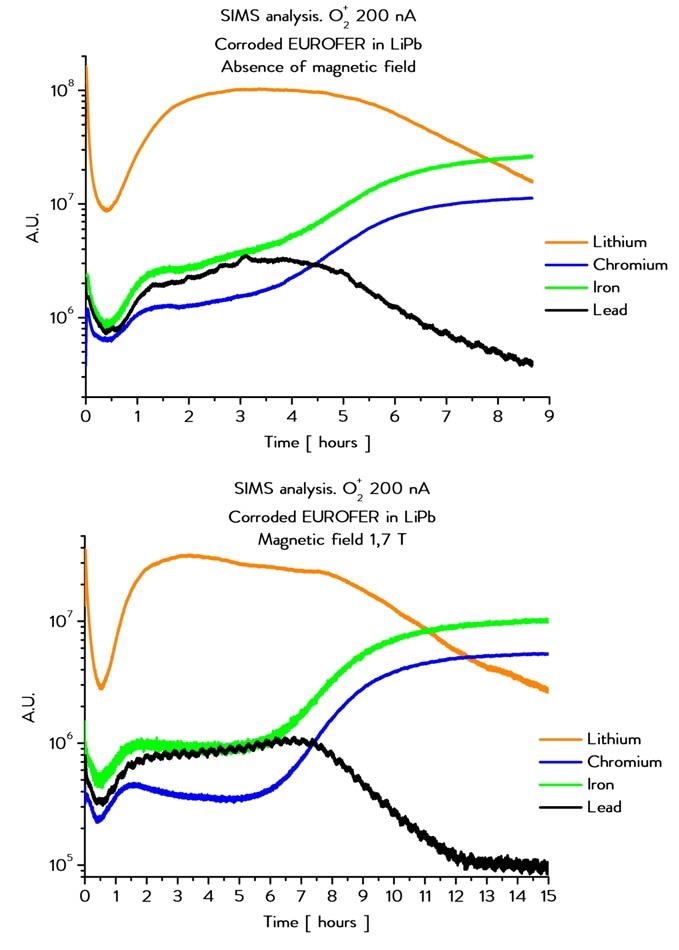It has been proposed to breed the fusion reaction in the future fusion reactors using lithium from solid lithium ceramics from the eutectic liquid-metal lithium-lead (LiPb). The breeder will be in direct contact with the reduced activation ferritic-martensitic (RAFM) structural steel EUROFER97. Thus, comprehensive data on the behavior and interaction of exposed materials is required.
Compatibility regarding the interaction between EUROFER and LiPb has already been examined. However, the effect of a magnetic field has not been considered. This effect is anticipated to be critical because it alters the hydrodynamics of the metal flow affecting the corrosion process and interacts with the ferromagnetic steel.
Corrosion Tests
Corrosion tests have been executed simulating the experimental conditions of a fusion reactor. A number of EUROFER samples were soaked in LiPb flowing, at 550 °C, 5 cm/s during 1000 hours. Furthermore, a perpendicular-flow 1.7 T magnetic field has been applied in a specific part of the loop. Identical EUROFER samples were analyzed under the same circumstances without the magnetic field.
Corrosion rate, for samples exposed to the magnetic field action, is 2-3 times higher compared with the samples placed outside the magnetic field. Magnetic field causes the formation of regular wave structure oriented in the metal flow direction. Theoretical analysis of the magneto-hydrodynamics (MHD) flow can explain both effects.
The corrosion process in relation to the liquid breeder is the dissolution of the structural steel – iron and chromium from EUROFER surface - into the liquid metal. Without magnetic field, corrosion happened especially at the grain boundaries, but with magnetic field, corrosion happened in the steel bulk too. Iron and chromium diffusion from the steel into the liquid metal as well as the breeder-steel interphase have been examined using SIMS since the light specimen Lithium is transparent to others methods of analysis. The facility includes a Hiden's MAXIM quadrupole mass analyzer (1-510 amu, 5% resolution), Ar gas primary ion gun (ions are accelerated up to 5 keV), or a Hiden IG20 O2.

SIMS analysis of the LiPb-EUROFER97 interphase for corroded steel samples in absence of a magnetic field (top) and under a 1.7 T magnetic field effect (bottom). O2+ was used as ion gun with a 200 nA current.
Project summary by:
Dr. Teresa Hernández
National Laboratory for Magnetic Fusion. Materials CIEMAT Avda.
Complutense 22
28040 Madrid
Spain
Paper Reference:
M. Carmona Gázquez, T. Hernández, F. Muktepavela, E. Platacis, A. Shishko (2015) “Magnetic field effect on the corrosion processes at the Eurofer–Pb–17Li flow interface”, Journal of Nuclear Materials 465, 633-639

This information has been sourced, reviewed and adapted from materials provided by Hiden Analytical.
For more information on this source, please visit Hiden Analytical.